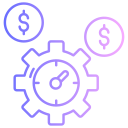
Organization Skills for Increased Productivity
Chosen theme: Organization Skills for Increased Productivity. Let’s turn scattered plans into steady progress with simple systems, honest stories, and practical habits you can start today. Jump in, share your wins and roadblocks, and subscribe for weekly momentum boosters.


Set Your Foundation: Why Organization Unlocks Momentum
Your brain has limited decision fuel each day. Organization reduces choices about where to start, which tool to use, and what to do next, preserving energy for real thinking. Pick one routine today to automate a recurring decision.
Set Your Foundation: Why Organization Unlocks Momentum
I once ended a chaotic week with a 20‑minute reset: cleared desk, labeled next steps, blocked Monday’s focus time. Monday felt lighter, faster, and kinder. Try a short reset today, then tell us what instantly felt easier.
Time Blocking That Breathes
Design Around Your Energy Peaks
Identify your prime hours and defend them. Schedule two 60–90 minute deep‑focus blocks for demanding work, then place lighter tasks in low‑energy periods. Comment with your best focus window so we can cheer you on.
Buffers Beat Overbooking
Add small buffers between meetings and tasks to absorb reality. Five to ten minutes prevents domino delays and frantic context switching. Try it today, then share which buffer—morning, midday, or evening—made everything feel calmer.
Calendar Tetris Done Right
Color‑code categories, link tasks to specific blocks, and run a weekly review to reassign anything that drifted. Keep your calendar honest, not aspirational. Subscribe for our time‑blocking checklist and tell us your favorite color scheme.
Prioritization You Can Trust
Score tasks quickly: high impact, low effort, real urgency climbs first. Pair it with the two‑minute rule for tiny wins. Rank today’s list using this lens and share one surprising task you decided to drop.

Digital Hygiene That Sticks
Inbox to Zero‑ish, Quickly
Use three folders: Action, Waiting, Archive. Sweep twice daily for fifteen minutes, batch replies, and enable Do Not Disturb during deep work. Commit in the comments: how many unread emails will you halve by Friday?
File Names That Find Themselves
Adopt a simple pattern: YYYY‑MM‑DD_project‑slug_version. Keep shallow folders and lean on search. I recovered a lost proposal in seconds after standardizing. Try renaming five files today and share your favorite, most findable filename.
A Kinder Notification Diet
Audit app alerts and toggle off anything non‑critical. Use summary delivery and custom focus modes for work, rest, and social. Run a one‑week experiment, then report back: which notification did you silence forever?
Design a Workspace That Works
Create three zones: Focus (clean surface, essentials only), Staging (current materials), Reference (archived items). A teammate found a lost headset after zoning. Post a before‑and‑after desk snapshot to inspire someone else’s reset.


Design a Workspace That Works
Use an IN tray for new items and an OUT tray for ready‑to‑go work. End each day with a five‑minute cut‑off ritual: clear, cue tomorrow, put devices to bed. Share your favorite shutdown song.
Routines, Habits, and Accountability
A Five‑Minute Morning Launch
Scan calendar, confirm your Top Three, prep tools, and set a timer for your first deep‑work block. Keep it simple and repeatable. Comment if you want our printable checklist, and invite a friend to join.
An Evening Shutdown Script
Close loops: capture loose tasks, log wins, schedule tomorrow’s first block, tidy your desk. I slept better within a week of practicing this. Share one win you’ll record tonight to reinforce momentum.
Build an Accountability Loop
Pair with a buddy, track a weekly scorecard, and post a public commitment every Monday. Small promises, visible progress. Report your weekly score in the comments and tag your partner to celebrate consistency.
